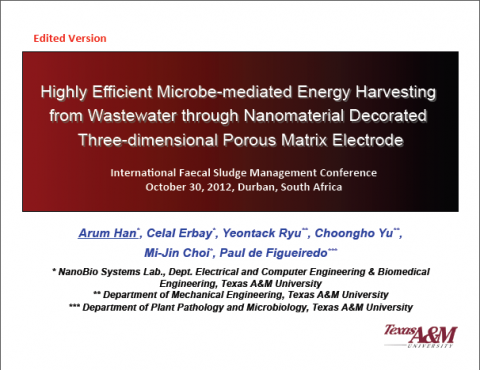Hybrid microbial-electrochemical system for waste utilization Various documents on results from research grant Han, A. (2013)
Bibliographic information
Han, A. (2013). Hybrid microbial-electrochemical system for waste utilization Various documents on results from research grant Texas A&M University, USA
Filter / Tags
Fundamental research and engineeringEnglish
Downloads
1 - Highly efficient microbe-mediated energy harvesting from wastewater through nanomaterial decorated three-dimensional porous matrix electrode
Type: application/pdf
Size: 19.79 MB

